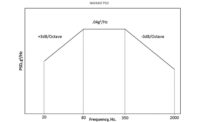Washer System Solves Tricky Cleaning Needs
For VMP, "cleaning" means not only removing oils, residues and tiny chips left behind by the manufacturing process, but often doing so from within deep crevices or blind holes in tiny parts. As business pressures changed, VMP executives concluded that they needed new technology to replace a 40-year-old cleaning system, a vapor degreaser, built in-house.
The firm, a family-owned business, manufactures threaded and nonthreaded inserts and fasteners, many conforming to MIL-I-45208 specifications. It also makes custom products, providing computer numeric controlled screw-machined parts from four different facilities for use in rotational-molding, injection-molding, electronics and fittings applications.
Parts sizes range from 0.032-inch diameter stock up to 3.5 inches. Jobs often require cutting holes and threads 0.08 inch to 3/8 inch in diameter. "We have many deep, blind holes with 16, 18 and 20 threads [per inch] and a pitch at the bottom of some of the parts," notes Bob Schreiner Jr., vice president and general manager.
VMP's washer search led it to Magnus Equipment (Cleveland) and its Magnus 36 SWR multi-motion washer system. Magnus, established in 1940, manufactures agitation-washing systems, both standard and custom, for a variety of industrial needs.
The machine fit VMP's multiple prerequisites for a parts washer that provides the right amount of heat, chemical concentration, aggressive agitation and axial rotation. Heating the cleaning solu-tion helps break down the oils present for easier elimination. The continuous immersion agitation, with rotation cycle, flushes miniscule chips out of the new parts. Then, rotation outside of the wash tank removes any residual cleaning solution, oil or chips remaining on or in the parts.
Further, the system's rinse tank, with an internal electric heater, provides a hotter rinse, so the parts--particularly many brass items--flash-dry once they leave the rinse water, meaning shorter time on a drying table.
The Magnus technology also answered related environmental and cost concerns. The system operated for almost two years before producing a waste stream, sludge left from used washing solution after wastewater evaporates. "From the volume we are seeing, we expect to generate only 55 gallons of waste sludge over two years," says Schreiner. "That's nothing compared to [waste volume from] our previous method," noting that it costs $200 per barrel to dispose of this waste.
Key among other conservation benefits, VMP can recycle used oil, separated within a coalescer unit, back to its machining operations.
More than 150,000 OEM and distributor parts machined by VMP now pass through the Magnus washer in 21/2 hours. The company's former cleaning system ran 24 hours a day and required two operators. Today, the Magnus washer handles the same workload, starting at 7 a.m. and finishing by 9:30 a.m., according to Schreiner.
Assured "clean" quality, speed, cost effectiveness and dependability of the washer system all came together for added business benefit: the ability to maintain a competitive product cost. That combination allowed VMP to take on more large-volume customers, resulting in tripled sales volume, the firm reports.
Magnus Equipment
(440) 942-8488
www.magnusequipment.com
Looking for a reprint of this article?
From high-res PDFs to custom plaques, order your copy today!



